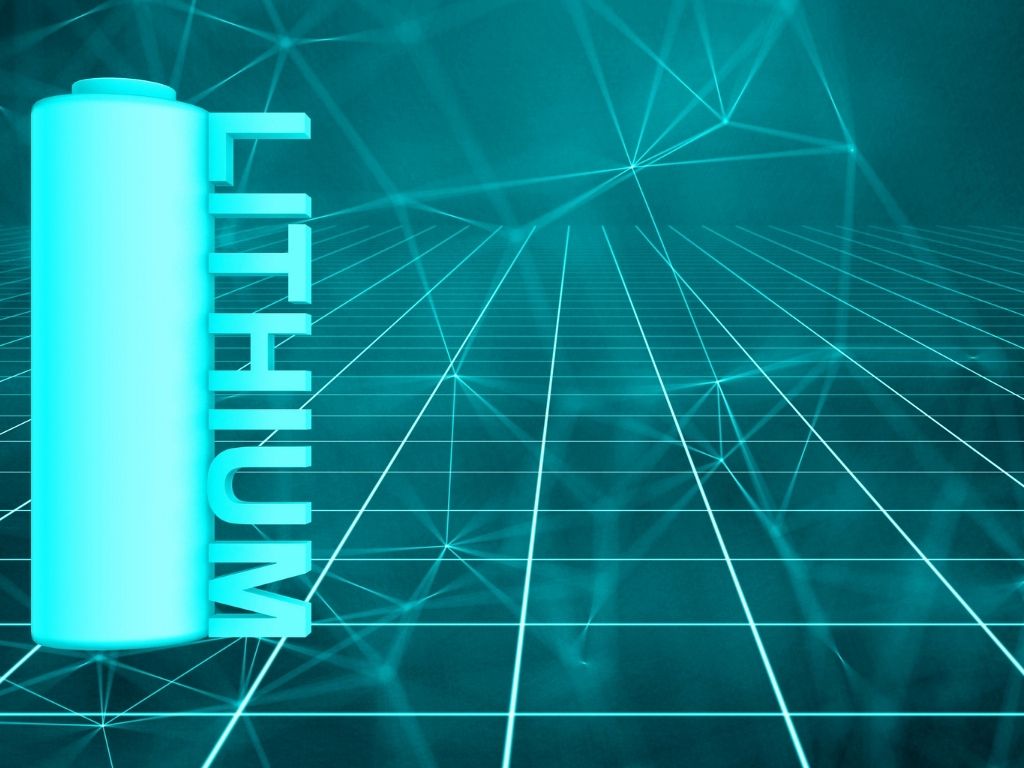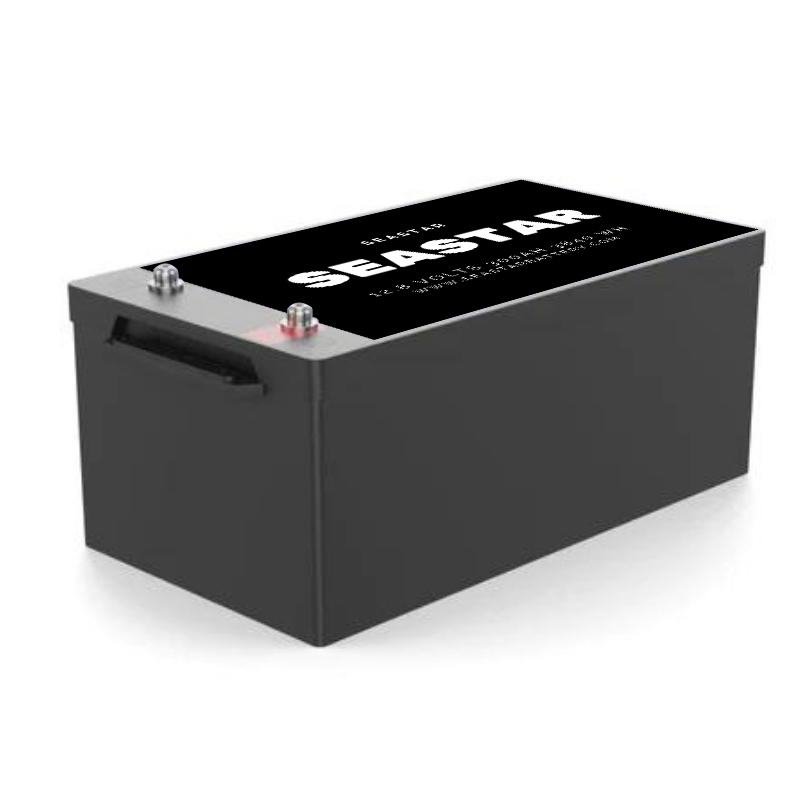If you’re in the market for a new battery, you’ve probably come across the term “lithium battery.” Lithium batteries are becoming increasingly popular in a variety of applications, from electric vehicles to golf carts and more. But what exactly is a lithium battery? In this blog post, we’ll give you a brief introduction to lithium batteries, specifically deep cycle LiFePO4 batteries.
Table of Contents

What is a lithium battery?
A lithium battery is a type of rechargeable battery that uses lithium ions as its primary electrolyte. Lithium batteries are lightweight and have a high energy density, making them ideal for applications where weight and space are important considerations. Lithium batteries are also capable of providing a high voltage, making them particularly well-suited for use in electrical vehicles.

How Does a Lithium Battery Work?
A typical lithium battery has a cathode made of a metal oxide, such as manganese oxide, and an anode made of carbon. The electrolyte is a lithium salt in an organic solvent. When the battery is in use, the electrolyte delivers lithium ions to the cathode. This process creates electrons that flow through the external circuit to the anode. When the battery is not in use, the ions flow back to the anode.
Lithium batteries have a higher energy density than other types of batteries, such as lead-acid batteries. This means that they can store more energy in a given weight or volume. Lithium batteries are also much lighter than other types of batteries. For example, a lead-acid battery typically weighs about three times as much as a lithium battery with the same capacity.
Lithium batteries also have a low self-discharge rate. This means that they retain their charge for longer periods of time than other types of batteries when not in use. For example, a lead-acid battery will typically lose about 30 percent of its charge after one month of storage, while a lithium battery will only lose about 5 percent of its charge during that same period of time.
Advantages of Lithium Batteries
There are several advantages to using lithium batteries:
High energy density: Lithium batteries can store more energy in a given weight or volume than other types of batteries.
Lightweight: Lithium batteries are much lighter than other types of batteries – making them ideal for portable electronic devices such as laptops and cell phones.
Low self-discharge rate: Lithium batteries retain their charge for longer periods of time when not in use – making them ideal for applications where long-term storage is required (such as power backup systems).
Long life: Lithium batteries can last for thousands of charge/discharge cycles – making them ideal for high-use applications such as electric vehicles.
Disadvantages of Lithium Batteries
Although lithium batteries offer many advantages over other types of batteries, there are also some disadvantages to consider:
High cost: Lithium batteries are usually more expensive than other types of batteries – such as lead-acid batteries.
environmental concerns: The production and disposal of lithium batteries can have negative environmental impacts due to the toxic nature of some metals used in their construction (such as cadmium and cobalt).
What is a deep cycle battery?
A deep cycle battery is a type of battery that can be discharged and recharged many times without significantly affecting its performance or longevity. Deep cycle batteries are often used in applications where the battery will be regularly discharged and recharged, such as golf carts, RVs, and marine applications.

Why Do You Need A Deep Cycle Battery?
If you’re planning on using renewable energy to power your home or business—or if you already are—then you’ll need a deep cycle battery to store the excess energy generated by your solar panels or wind turbine. That way, you’ll have power even when the sun isn’t shining or the wind isn’t blowing.
Deep cycle batteries are also commonly used in a variety of other applications, including trolling motors on boats, electric vehicles (EVs), golf carts, wheelchairs, and material handling equipment.

What are the benefits of using LiFePO4 batteries?
LiFePO4 (lithium iron phosphate) batteries offer several advantages over other types of lithium batteries, making them an ideal choice for deep cycle applications. LiFePO4 batteries are more stable than other types of lithium batteries, which means they’re less likely to catch fire if they’re damaged or overheated. LiFePO4 batteries also have a higher discharge rate than other types of lithium batteries, making them ideal for applications where frequent discharge and recharge cycles are expected. In addition, LiFePO4 batteries have a longer lifespan than other types of lithium batteries—up to 10 times longer!
Lithium batteries are becoming increasingly popular due to their high energy density and long lifespan. Deep cycle LiFePO4 batteries are an ideal choice for applications where the battery will be regularly discharged and recharged. If you’re considering purchasing a deep cycle battery, be sure to talk to one of our experts to find the best solution for your needs!
Deep cycle battery vs Lithium-ion
Deep cycle batteries and lithium-ion batteries are two popular options with distinct characteristics. Understanding the differences between them is crucial in making an informed decision about the best power solution for your needs. In this we will explore the features, advantages, and considerations of deep cycle batteries and lithium-ion batteries, helping you determine which one is the optimal choice.
Deep Cycle Batteries
Deep cycle batteries are designed to provide sustained power over extended periods, making them suitable for applications such as marine vehicles, recreational vehicles (RVs), off-grid solar systems, and more. They are rechargeable and built to endure deeper discharge levels before requiring recharging.
Deep cycle batteries come in various chemistries, including lead-acid, flooded, and sealed options. Lead-acid batteries, known for their affordability and long lifespan, are the most commonly used deep-cycle batteries. While flooded batteries demand regular maintenance, sealed batteries are virtually maintenance-free.
Lithium-Ion Batteries
Lithium-ion batteries are widely utilized in electronics like Solar Power Systems, Golf Carts and Electric Vehicles, and Camping and Leisure Vehicles, Energy Storage Systems, and Emergency Backup Power, Industrial Applications due to their high energy density and extended lifespan. They offer a compact and efficient energy storage solution for applications that require substantial power output.

Deep Cycle Lithium Batteries Application
Seastar Battery provides high-quality Deep Cycle Lithium Batteries for international importers and purchasers
Pros and Cons
Deep cycle batteries have the advantages of affordability, versatility across applications, and easy availability. However, they are relatively heavy, necessitate regular maintenance, and have a shorter lifespan compared to lithium-ion batteries.
On the other hand, lithium-ion batteries offer prolonged lifespans, higher efficiency, and faster charging capabilities. However, they come with a higher price tag and require specialized handling, making them unsuitable for certain applications.
Choosing the Right Battery
Selecting the ideal battery depends on your specific requirements. Deep cycle batteries are well-suited for applications that demand consistent power supply over extended periods, such as off-grid solar systems. Conversely, if you require greater power output in a compact form factor and can accommodate the higher cost, lithium-ion batteries are the optimal choice.
